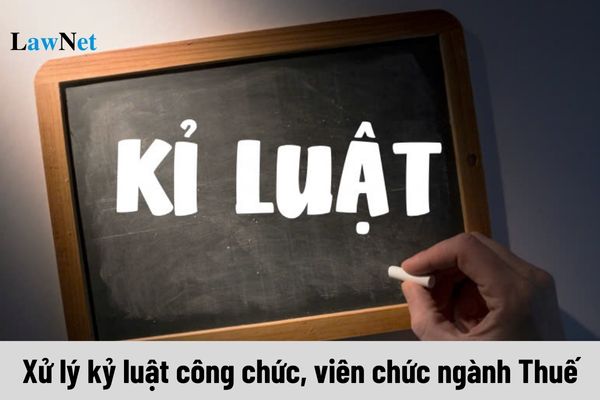How many forms of disciplinary actions are applied to tax officials and public employees who commit corruption in Vietnam?
What is Corruption?
According to the provisions of Article 22 of the Regulation on Anti-Corruption in the Tax Sector issued together with Decision 742/QD-TCT in 2020, corruption is defined as behavior related to the integrity and character of officials and public employees that adversely impacts the reputation of the sector.
How many forms of disciplinary actions are applied to tax officials and public employees who commit corruption in Vietnam?
Based on the provisions of Article 22 of the Regulation on Anti-Corruption in the Tax Sector issued together with Decision 742/QD-TCT in 2020 regarding disciplinary actions for those who commit corruption, the following apply:
tax officials and public employees, when committing corruption (not to the extent of criminal prosecution), will be disciplined based on the nature and extent of the case with one of the 06 forms as follows:
- Reprimand.
- Warning.
- Salary reduction.
- Demotion.
- Dismissal.
- Forced resignation.

How many forms of disciplinary actions are applied to tax officials and public employees who commit corruption in Vietnam? (Image from Internet)
What are the principles for considering disciplinary actions for tax officials and public employees who commit corruption in Vietnam?
According to the provisions of Clause 1, Article 23 of the Regulation on Anti-Corruption in the Tax Sector issued together with Decision 742/QD-TCT in 2020 regarding the principles for considering disciplinary actions as follows:
Article 23. Principles, Authority, Process, and Procedures for Disciplinary Actions
1. The principles for considering disciplinary actions are implemented according to the regulations of Article 2, Chapter I of Decree No. 34/2011/ND-CP dated May 17, 2011, by the Government of Vietnam regarding disciplinary actions for officials; Article 3, Chapter II of Decree No. 27/2012/ND-CP dated April 6, 2012, by the Government of Vietnam regarding disciplinary actions for public employees and their responsibility for compensation and reimbursement.
...
However, Decree 34/2011/ND-CP regarding disciplinary actions for officials has been invalidated since September 20, 2020, and the content related to disciplinary actions for public employees regulated in Decree 34/2011/ND-CP has been annulled by point b, clause 2, Article 44 of Decree 112/2020/ND-CP.
Currently, the document regulating the principles for disciplinary actions; the application of corresponding disciplinary forms for violations; the authority, process, and procedures for disciplinary actions for officials and public employees is Decree 112/2020/ND-CP (Effective from September 20, 2020).
Therefore, the principles for considering disciplinary actions for officials and public employees in the Tax Sector committing corruption are implemented according to the provisions of Article 2 of Decree 112/2020/ND-CP (amended and supplemented by Clause 2, Article 1 of Decree 71/2023/ND-CP) as follows:
- Ensure objectivity, fairness; be public, stringent; accurate, promptly; follow proper authority, process, and procedures.
- Each violation is disciplined once by one form of disciplinary action. At the same time, if an official or public employee has 02 or more violations, consider and conclude each violation, then decide jointly with the highest form corresponding to the most severe violation.
- If an official or public employee, during the period of implementing a disciplinary decision, continues to violate, the following disciplinary actions apply:
+ If the violation warrants a lighter or equal disciplinary action compared to the ongoing discipline, a stricter form one level above the current discipline is applied;
+ If the violation warrants stricter disciplinary action than the ongoing discipline, a stricter form one level above the action for the new violation is applied.
- Disciplinary actions must be based on content, motive, nature, level, consequences, causes of violations, specific circumstances; aggravating or mitigating factors; attitude for self-improvement and rectification; handling of shortcomings, violations, consequences; and other cases as regulated by the Communist Party and law considered as grounds for remission or reduced responsibility.
- Relatives such as spouses, biological parents, in-laws, adoptive parents, natural or adopted children, siblings, cousins, or those with rights or obligations related to the violation under review are not allowed to be members of the disciplinary council or preside over the review meeting.

